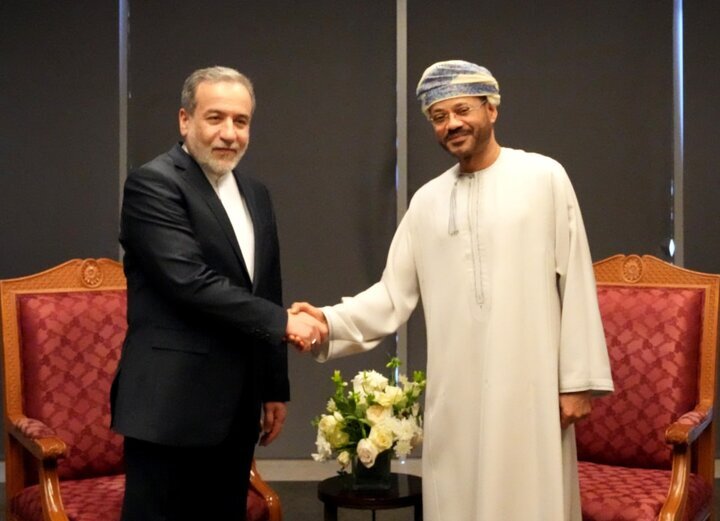
Iran and the United States spoke indirectly in Oman on Saturday, as tensions remained smoldering between the two countries, and the Iranian side approached the talks gingerly and with deep mistrust. The Tehran Times had obtained new information about what went on that day and whether any concrete results could be expected from the first major encounter between the two states in several months.
The talks began around 3:00 pm local time at the residence of Omani Foreign Minister Badr bin Hamad Albusaidi, who acted as a go-between. From the Iranian side, Seyyed Abbas Araghchi and from the American side, Special Presidential Envoy Steve Witkoff, were present at the top diplomat’s home. Less than 10 written messages were exchanged, with Araghchi delivering the first one.
The two officials accompanying delegations stayed at their hotels. Witkoff arrived in Oman with two individuals accompanying him, one of them a nuclear expert. He exchanged greetings with Araghchi as the two were departing their separate rooms at the end of the session.
What was said
In his messages, Araghchi declared that Iran is not engaging in the indirect talks for show and that it is not trying to play a game of chicken, according to information obtained by the Tehran Times. Tehran's primary objective is to gauge the U.S. side's sincerity and determine the feasibility of reaching an agreement, he told Witkoff.
Araghchi emphasized that Iran wants a win-win agreement. It would not, under any circumstances, agree to dismantle its nuclear program. However, he stated that the country would be willing to take steps to provide assurances against the militarization of its nuclear activities. The International Atomic Energy Agency (IAEA) would be the only external entity permitted access to Iran's nuclear sites.
What Tehran wants in return is for sanctions to be removed on several sectors. Once those sanctions are removed, the U.S. cannot bring them back under other pretexts.
Araghchi also stipulated that a general framework agreement was necessary for the continuation of the talks. If the U.S. objects to the framework proposed by Iran during the initial session, it should present its own alternative for Iran to consider.
The Tehran Times has learned that Witkoff, for his part, acknowledged that Washington needs to make concessions. He did not mention the potential dismantlement of Iran's nuclear program, nor did he reference the original accord, the JCPOA, from which former U.S. President Donald Trump withdrew in 2018.
What’s happening on the sidelines
A key development revealed to The Tehran Times suggests that European states may be attempting to sabotage the talks, as they believe they must also be part of them.
Germany, Britain, and France argue that, as the only parties having the capability or will to trigger the snapback mechanism (set to expire by mid-October and designed to reinstate pre-JCPOA UN sanctions against Iran), they should not be kept in the dark. Consequently, they are trying to get Israeli Prime Minister Benjamin Netanyahu somewhat involved in the negotiations so they would be able to influence the process.
Iran, however, told the U.S. on Saturday that it would be on Washington to make sure snap back does not get activated.
Europeans are also considering additional measures to exert pressure on Iran, including designating the Islamic Revolution Guard Corps (IRGC) as a terrorist entity. The Tehran Times understands that they are currently seeking individual member state support before bringing the proposal to the European Parliament.
Furthermore, the E3 is planning to launch propaganda campaigns to draw a rift between Iran, Russia, and China, believing that with the potential resentment of the two biggest allies of Iran, the country would have more hurdles in striking a deal with the United States.
What to expect
While the indirect Oman talks gave fresh life to diplomacy, the future still remains uncertain. Iran, particularly, finds it difficult to trust the U.S. again after Washington’s abandonment of the JCPOA.